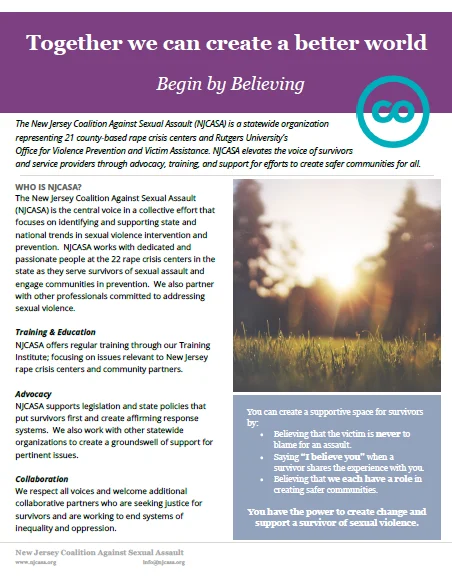
Intended for community members and stakeholders, these short and informative resources provide an overview of concepts and offer resources for individuals interested in learning more:
These resources are not intended to be widely disseminated by organizations other than NJCASA and member sexual violence programs. Please contact info@njcasa.org if you would like to use NJCASA as a resource or table exhibitor at an upcoming event or conference.
COVID-19 Impact Report
Published in 2023, this report details how the COVID-19 pandemic has shifted and shaped services and identifies new practices and innovations for improving access to care. The findings of this report are informed by data shared by our Community Council, membership, programs, and community partners.
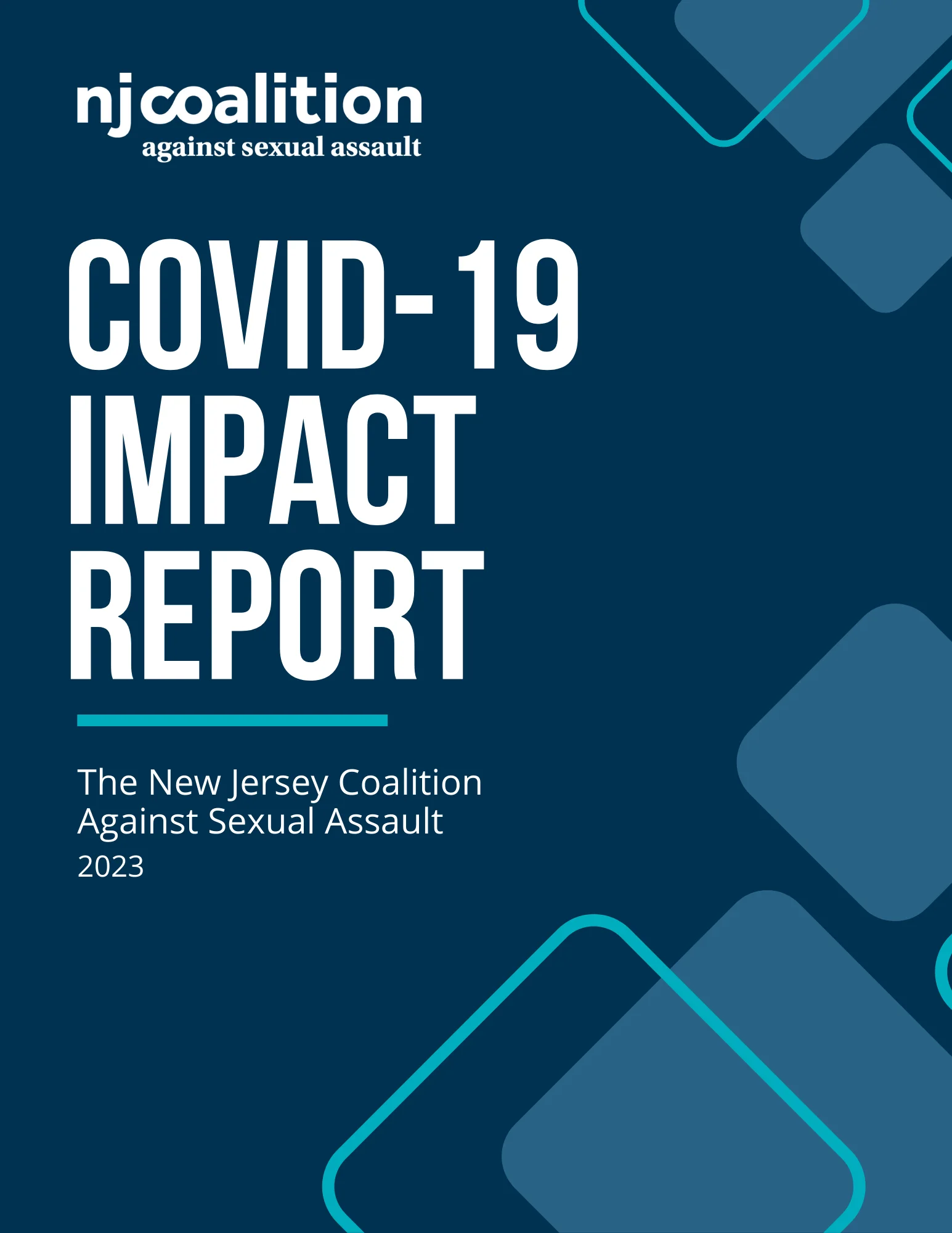
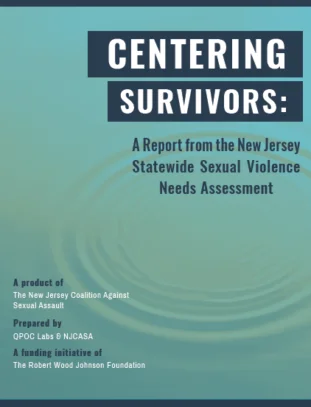
Published in 2021, this report overviews results from NJCASA’s statewide Survivor Survey and Stakeholder Survey to better understand the lived experiences of survivors-victims of sexual violence in N.J.
Published in 2020, this report overviews sexual harassment and misogyny in the N.J. political realm. The report is informed by over 500 respondents and includes recommendations on how to build safer spaces for everyone working and volunteering in N.J. politics.
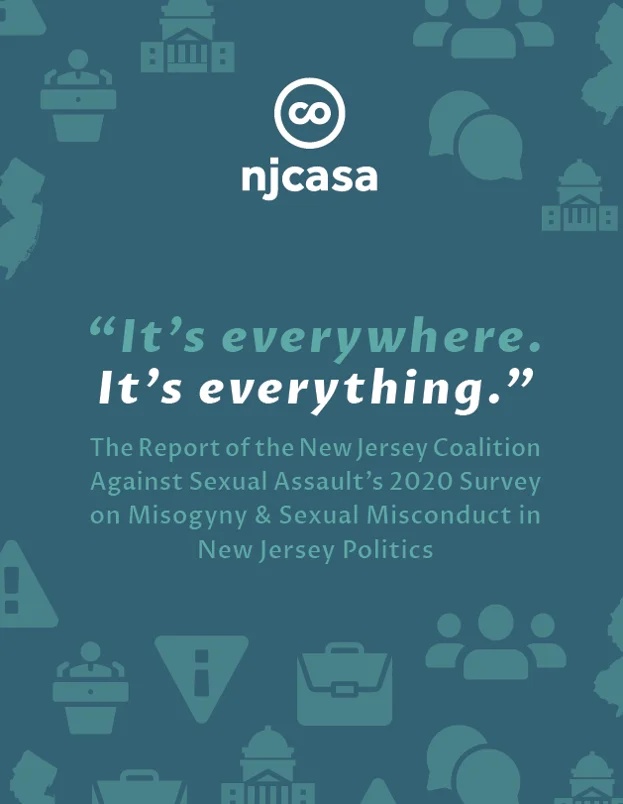
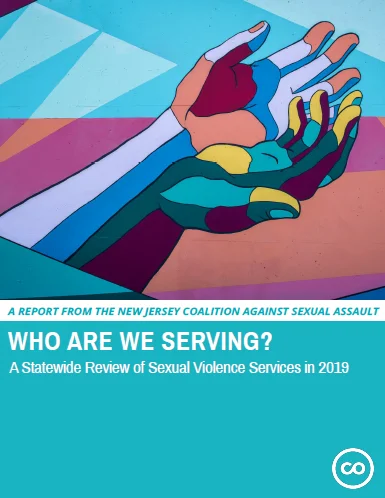
Published in 2020, this report details the state of sexual violence service provision in New Jersey in 2019 and provides recommendations for improving service delivery.
Guided by emerging research, these resources are designed to inform best practices for addressing and preventing sexual violence. Please contact info@njcasa.org with questions or comments.
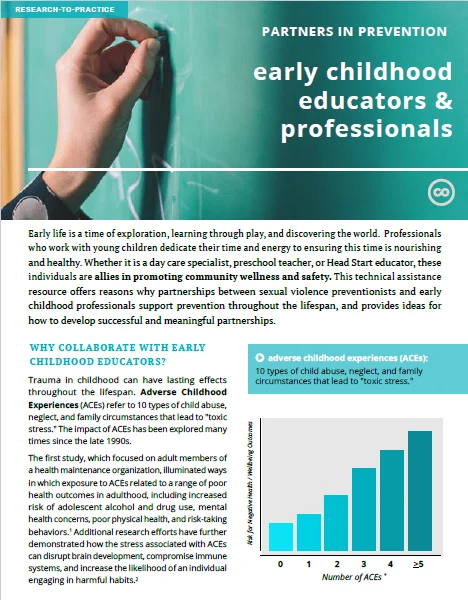

In At the Intersections, NJCASA explores the root cause of sexual violence: oppression. Through blog posts, info graphics, and social media content, we break down how racism, sexism, homophobia, transphobia, white nationalism, and other -isms all contribute to sexual violence. Learn more >>
NJCASA’s approach to preventing sexual violence focuses on primary prevention, or stopping violence before it occurs. Learn more about our approach to prevention with our teal paper on primary prevention and fact sheet on primary prevention versus risk reduction.
We all have a role to play in preventing sexual violence – whether at school, in the workplace, or at home. The NJCASA C.A.R.E.S. campaign simplifies sexual violence prevention and offers concrete tips for creating safer communities.
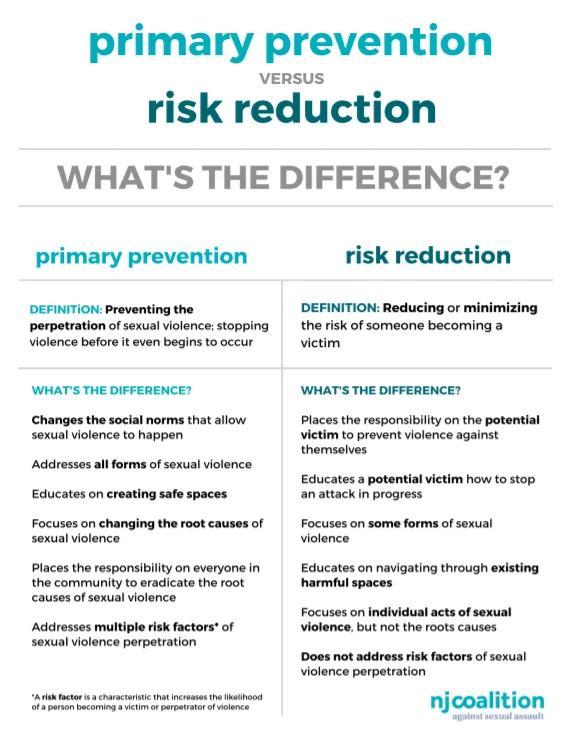
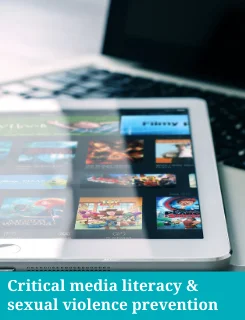
NJCASA’s media literacy curriculum, Gender and Violence: How Media Shape Our Culture, provides adolescents and young adults with the tools needed to critically evaluate and analyze media messages.
NJCASA’s Road to Prevention equips community members with the resources and tools they need to prevent sexual violence and create a safer Garden State in their day-to-day lives.
How do we build safer communities in New Jersey? NJCASA’s Growing a Safer Garden State resources offers communities examples of the dynamics and causes of violence, activities for supporting nurturing environments, and ways to communicate as we create change.
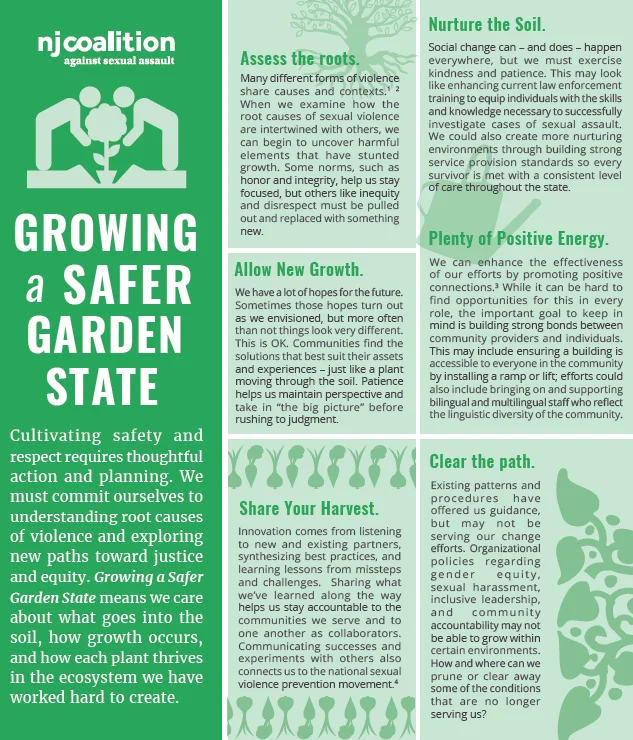

Media reporting on sexual violence is a critical piece in the puzzle of shifting public perceptions and cultural norms that allow violence to persist. Developed for media professionals and journalists in the field, NJCASA’s Media Toolkit explores language choices that will best inform readers about sexual violence and provides a contact list of local experts who can provide key insights. Check out the Toolkit >>
Please see our Laws & Policy page for legislative updates on policy affecting survivors and communities in New Jersey.
